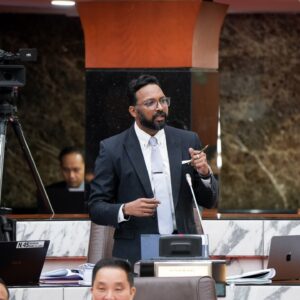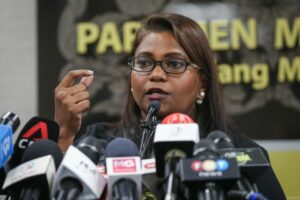
DAPSY National Varsity Affairs Bureau Director Ho Chi Yang urged the unity government to push for healthcare reforms, including increasing the number of specialists in the country. Among all, it is high time to consider opening up the cardiothoracic surgery postgraduate programme offered by the Universiti Teknologi MARA (UiTM) to non-Bumiputera doctors to address the severe shortage of cardiothoracic surgeons in Malaysia.
Discussions about opening up the programme emerged when several graduates from the Royal College of Surgeons of Edinburgh (RCSEd) were denied entry to the National Specialist Register (NSR), causing a significant stir in the medical community. Prof. Dr. Raja Amin, a member of the Board of Studies at the UiTM-IJN cardiothoracic surgery postgraduate programme, said that the university is considering temporarily opening up the Cardiothoracic Surgery parallel pathway programme to non-Bumiputeras. The Malaysian Medical Association also urged the UiTM to consider admitting non-Bumiputera students in the same way it enrolls international students. However, this suggestion faced fierce opposition from some quarters, who opposed opening the programme to non-Bumiputera doctors.
Ho Chi Yang said that some individuals, including certain politicians, are exploiting the discussion to inflame racial tensions for political gain. Unfortunately, this would make the medical field and our society miss out on the critical opportunity to seriously discuss reforms in the health care system.
Ho Chi Yang, who is also the Tanah Rata State Assemblyman in Cameron Highlands, explained that the proposal to open up the Cardiothoracic Surgery program aims at allowing more general practitioners to further their studies and become specialists, thereby increasing the extremely low number of cardiothoracic specialists in Malaysia. He argues that claims by certain individuals and politicians that opening the program would violate the Federal Constitution and deprive Bumiputeras of educational opportunities are prejudiced, misleading, fallacious, and a distortion of the facts.
He clarified that if the UiTM opens up the Cardiothoracic Surgery parallel pathway program to non-Bumiputeras, it would allow more doctors, both Bumiputera and non-Bumiputera, to become cardiothoracic surgeons. This would help address the critical shortage of cardiothoracic surgeons in the country, which will in turn save more lives.
At the same time, Ho Chi Yang also highlighted that according to the Malaysian Association for Thoracic and Cardiovascular Surgery (MATCVS) president Datuk Dr Basheer Ahamed Abd Kareem., there are only 14 cardiothoracic surgeons in government hospitals nationwide, several of which are near retirement. This severe shortage poses a serious threat to the healthcare system and has far-reaching implications for the nation’s healthcare services.
Ho Chi Yang emphasized that ignoring badly needed healthcare reforms to accommodate those who were constantly playing up racial issues would make it increasingly difficult for Malaysia to face the challenges of an aging society.
Based on the United Nations’ “World Social Report 2023″, it is predicted that by the end of 2022, Malaysia’s elderly population (those aged 65 and above) will constitute 7.3% of the total population, indicating that Malaysia is rapidly becoming an aging society. By 2044, this proportion is expected to double to 14%, thus necessitating more healthcare professionals. However, the severe shortage of specialists, including cardiothoracic surgeons, reflects an imbalanced healthcare system that has yet to adjust to these imminent societal challenges.
In light of the Ministry of Health’s presentation of the Health White Paper (HWP) in the Parliament on June 15, 2023, Ho Chi Yang called on both the government and the opposition to set aside partisan differences and discuss, rationally and professionally, the healthcare reform strategies outlined in the white paper. He also urged the government and the Ministry of Health to expedite the establishment of specialist training programs at major universities to increase the number of specialist doctors in the country and meet the significant challenges posed by an aging population.
The country is in urgent need of “whole-of-society” debates and discussions on healthcare reforms, rather than sticking to the archaic but toxic racial agendas to stir social emotions, which would cost the country a crucial opportunity to push forward major healthcare reforms.



